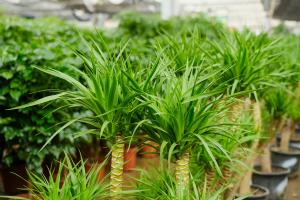Is Hard Water Killing My Aquarium Plants?
If you’re an aquarium enthusiast, you understand how important it is to maintain a healthy aquatic ecosystem. One of the most critical aspects of achieving this is ensuring that your aquarium plants are thriving. However, if your water is hard, it could be harming your plants. In this article, we’ll explore what hard water is, how it affects your aquarium plants, and what you can do to remedy the situation.
What is Hard Water?
Hard water is water that contains high levels of dissolved minerals, including calcium, magnesium, and iron. While these minerals are not harmful to humans, they can be problematic for aquarium plants. The hardness of water is determined by the amount of calcium carbonate it contains. If your water has a high level of calcium carbonate, it is considered to be hard water.
How Does Hard Water Affect Aquarium Plants?
Hard water can impact aquarium plants in several ways. One of the most significant effects is that it can interfere with plant growth. Calcium and magnesium ions can accumulate in the roots of the plant, leading to blockages that prevent the uptake of essential nutrients like potassium and nitrogen. Additionally, hard water can cause fluctuations in pH levels, making it difficult for plants to grow and thrive.
How Can You Tell if You Have Hard Water?
There are several ways to determine if you have hard water. One of the easiest ways is to observe the water in your aquarium. If you notice a white, chalky buildup on the glass, décor, or equipment, it’s a sign that you have hard water. You can also purchase a water hardness test kit to measure the level of minerals in your water accurately.
What Can You Do to Remedy Hard Water?
If you have hard water in your aquarium, there are several steps you can take to remedy the situation. One common method is to add a water softener to your aquarium. This product will remove the minerals that cause hard water and create a more suitable environment for your plants to grow. Another method is to use reverse osmosis (RO) water, which is pure water without any dissolved minerals. However, RO water can be expensive to purchase and may require additional equipment.
Conclusion
Hard water can be a significant challenge for aquarium enthusiasts looking to maintain healthy aquatic ecosystems. It can impact plant growth, interfere with nutrient uptake, and cause fluctuations in pH levels. However, by recognizing the signs of hard water and taking action to remedy the situation, you can create a more suitable environment for your aquarium plants to thrive. Whether you choose to use a water softener, RO water, or another method, your efforts will be rewarded with healthier and more vibrant plant life in your aquarium.

 how many times do yo...
how many times do yo... how many planted tre...
how many planted tre... how many pine trees ...
how many pine trees ... how many pecan trees...
how many pecan trees... how many plants comp...
how many plants comp... how many plants can ...
how many plants can ... how many plants and ...
how many plants and ... how many pepper plan...
how many pepper plan...
































